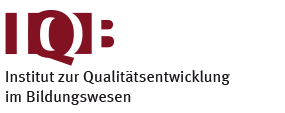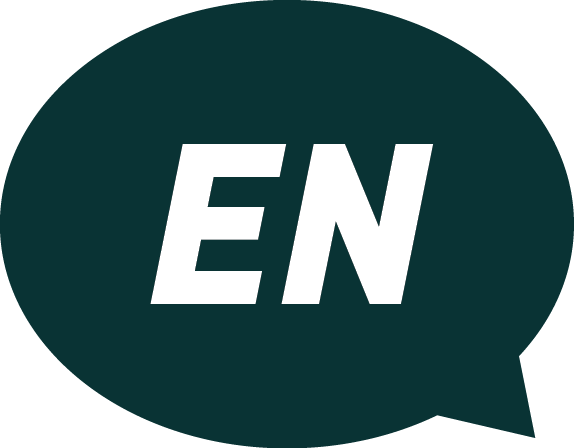Umsetzung der Bildungsstandards
Ein Ziel der Forschung im IQB besteht darin, die Rolle qualitätssichernder Verfahren für die Schul- und Unterrichtsentwicklung zu untersuchen. Zum einen betrifft dies Fragen der Implementation kompetenzorientierter Bildungsstandards im Primarbereich und in der Sekundarstufe I. In verschiedenen Veröffentlichungen von Mitarbeiterinnen und Mitarbeitern des Instituts wird unter anderem der Frage nachgegangen, inwieweit die Vergleichsarbeiten, die zur Umsetzung der Bildungsstandards in Schulen beitragen sollen, von Lehrkräften zur Unterrichtsentwicklung genutzt werden.
Ein weiterer Schwerpunkt dieses Forschungsbereichs betrifft die Sekundarstufe II. Die KMK verfolgt mit der Einrichtung eines gemeinsamen Pools von Abiturprüfungsaufgaben der Länder das Ziel, die Implementation der Bildungsstandards für die Allgemeine Hochschulreife zu unterstützen und die Vergleichbarkeit der Anforderungen von Abiturprüfungen in den Ländern zu erhöhen. Das IQB hat den Auftrag, den Aufbau des gemeinsamen Abituraufgabenpools begleitend zu evaluieren und Anhaltspunkte darauf zu gewinnen, inwieweit die damit verbundenen Ziele der KMK erreicht werden. Im Fokus der Begleitforschung steht dabei aktuell die Frage, wie sich die aus den gemeinsamen Aufgabenpools entnommenen Abituraufgaben in den Abiturprüfungen der Länder empirisch bewähren. Hierzu wird jährlich eine bundesweite Evaluation durchgeführt. Darüber hinaus wird die Bewertung von Abiturarbeiten untersucht, um die Entwicklung der Aufgaben weiter zu optimieren.
Ausgewählte Publikationen
- Lenski, A., Richter, D. & Pant, H.A. (2015). Kompetenzorientierung im Unterricht aus der Perspektive von Lehrkräften und Schülerinnen und Schülern. Zeitschrift für Pädagogik, 61(5), 712–737.
- Pöhlmann, C., Pant, H. A., Frenzel, J., Roppelt, A. & Köller, O. (2014). Auswirkungen einer Intervention auf die Auseinandersetzung und Arbeit mit Bildungsstandards bei Mathematik-Lehrkräften. Zeitschrift für Erziehungswissenschaft, 17(1), 113–133.
- Richter, D. (2016). Die Vergleichsarbeiten in Deutschland: Eine Bestandsaufnahme. In Bundesministerium für Bildung und Forschung (Hrsg.), Bildungsforschung 2020: Zwischen wissenschaftlicher Exzellenz und gesellschaftlicher Verantwortung (S. 87-96). Berlin: Bundesministerium für Bildung und Forschung.
- Richter, D. & Böhme, K. (2014). Vergleichsarbeiten im Fokus: Welche Funktionen erfüllt der Test aus Sicht von Lehrkräften? Schulmanagement, 45(2), 12–14.
- Richter, D., Böhme, K., Becker, M., Pant, H. A. & Stanat, P. (2014). Überzeugungen von Lehrkräften zu den Funktionen von Vergleichsarbeiten: Zusammenhänge zu Veränderungen im Unterricht und den Kompetenzen von Schülerinnen und Schülern. Zeitschrift für Pädagogik, 60(2), 225–244.
- Thiel, F., Hannover, B. & Pant, H. A. (2014). Nutzung und Effekte zentraler Abschlussprüfungen und standardbasierter Schulleistungstests als Instrumente der Neuen Steuerung. Zeitschrift für Erziehungswissenschaft, 17(1), 3–6.
- Wurster, S. (2016). Evaluationsbasierte Schul- und Unterrichtsentwicklung: Eine multiperspektivische Analyse von Schulinspektion, interner Evaluation, Vergleichsarbeiten und zentralen Abschlussprüfungen. Dissertation, Humboldt-Universität zu Berlin, Berlin.
- Wurster, S., Richter, D., Schliesing, A. & Pant, H. A. (2014). Nutzung unterschiedlicher Evaluationsdaten an Berliner und Brandenburger Schulen. Rezeption und Nutzung von Ergebnissen aus Schulinspektion, Vergleichsarbeiten und interner Evaluation im Vergleich. In C. Fischer (Hrsg.), Damit Unterricht gelingt. Von der Qualitätsanalyse zur Qualitätsentwicklung (S. 53–84). Münster: Waxmann.
- Zeitler, S. (2010). Bildungsstandards in der Schule. Eine rekonstruktive Studie zur Implementation der Bildungsstandards. Dissertation, Humboldt-Universität zu Berlin, Berlin.
- Zeitler, S., Heller, N. & Asbrand, B. (2012). Bildungsstandards in der Schule. Eine rekonstruktive Studie zur Implementation der KMK-Bildungsstandards. Münster: Waxmann.

